
The Red Hot Chili Peppers are an American rock band formed in Los Angeles in 1982, comprising Anthony Kiedis (vocals), Flea (bass), John Frusciante (guitar) and Chad Smith (drums). Their music incorporates elements of alternative rock, funk, punk rock, hard rock, hip hop, and psychedelic rock, and have influenced genres such as funk metal, rap metal, rap rock, and nu metal. With over 120 million records sold worldwide, the Red Hot Chili Peppers are one of the top-selling bands of all time. They hold the records for most number-one singles (15), most cumulative weeks at number one (91) and most top-ten songs (28) on the Billboard Alternative Songs chart. They have won three Grammy Awards, were inducted into the Rock and Roll Hall of Fame in 2012, and in 2022 received a star on the Hollywood Walk of Fame.

Siouxsie and the Banshees were a British rock band formed in London in 1976 by vocalist Siouxsie Sioux and bass guitarist Steven Severin. They were widely influential, both over their contemporaries and later acts. The Times called the group "one of the most audacious and uncompromising musical adventurers of the post-punk era".
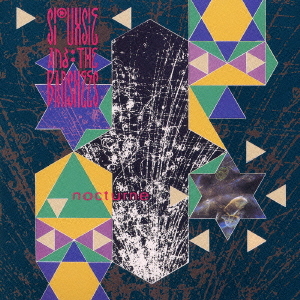
Nocturne is a live double album and video by English rock band Siouxsie and the Banshees, released on 25 November 1983 by Polydor Records. Co-produced by Mike Hedges, Nocturne features performances recorded at two shows at the Royal Albert Hall in London, on 30 September and 1 October 1983, featuring Robert Smith on guitar.

The Glove was a 1983 English musical collaboration and recording project by the Cure's Robert Smith and Siouxsie and the Banshees' Steven Severin. They released one studio album, Blue Sunshine, in 1983 as part of Severin's solo deal with Polydor. The latter came up with the band name, the album title and the blue/yellow sleeve concept, as Smith had to leave the project before completion due to prior commitments with the Cure.

John Alexander McGeoch was a Scottish musician and songwriter. He is best known as the guitarist of the rock bands Magazine (1977–1980) and Siouxsie and the Banshees (1980–1982).
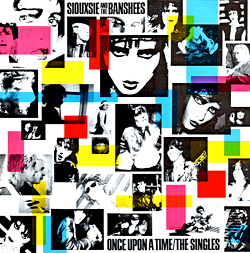
Once Upon a Time/The Singles is Siouxsie and the Banshees's 1981 compilation album featuring the band's UK single releases to date. The album featured several songs that had been released as singles yet had not appeared on any of the Banshees' four albums. Once Upon a Time/The Singles spent twenty six weeks in the UK albums chart. The sleeve was designed by Stylorouge.
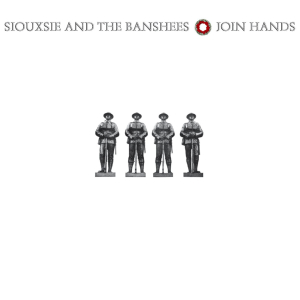
Join Hands is the second studio album by the English rock band Siouxsie and the Banshees, released on 7 September 1979 by Polydor Records. Upon its release, it was praised by the British press, including Melody Maker, Sounds, NME and Record Mirror.
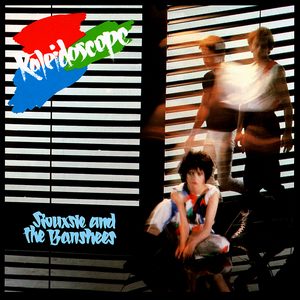
Kaleidoscope is the third studio album by British rock band Siouxsie and the Banshees, released on 1 August 1980 by Polydor Records. With the departure of John McKay and Kenny Morris and their replacement by two new musicians, Budgie on drums and John McGeoch on guitars, the band changed their musical direction.

Juju is the fourth studio album by British rock band Siouxsie and the Banshees. It was recorded at Surrey Sound studio with Nigel Gray as co-producer, and was released on 19 June 1981 by Polydor Records. Two singles were released from Juju: "Spellbound" and "Arabian Knights".

A Kiss in the Dreamhouse is the fifth studio album by British rock band Siouxsie and the Banshees, released on 5 November 1982 by Polydor Records. The record marked a change of musical direction, as the group used strings for the first time and experimented in the studio. Guitarist John McGeoch played more instruments, including recorder and piano. For Julian Marszalek of The Quietus, the release proved the Banshees to be "one of the great British psychedelic bands."

Hyæna is the sixth studio album by English rock band Siouxsie and the Banshees, released on 8 June 1984 by Polydor Records. The opening track, "Dazzle", featured strings played by musicians of the London Symphonic Orchestra (LSO), a 27-piece orchestra called the "Chandos Players"; it was scored from a tune that Siouxsie Sioux had composed on piano. Hyæna is the only studio album that guitarist Robert Smith of the Cure composed and recorded with Siouxsie and the Banshees.

Tinderbox is the seventh studio album by English rock band Siouxsie and the Banshees. It was released on 21 April 1986 by Wonderland and Polydor Records in the United Kingdom and by Geffen Records in the United States. It was the band's first full-length effort recorded with then-new guitarist John Valentine Carruthers; Carruthers had previously only added a few parts on the 1984 EP The Thorn. The first recording sessions for the album took place at Hansa by the Wall in Berlin in May 1985.

"The Staircase (Mystery)" is a song by English rock band Siouxsie and the Banshees, released as a stand-alone single on 23 March 1979 by Polydor Records. The track was written by Siouxsie Sioux, John McKay, Steven Severin and Kenny Morris, and was produced by Nils Stevenson.

"Mittageisen" is a song by English rock band Siouxsie and the Banshees. It originally appeared on the band's 1978 debut album The Scream as "Metal Postcard (Mittageisen)"; the track was re-recorded in 1979, this time with the lyrics sung in German, and released as a single in West Germany with "Love in a Void" on the b-side. That September the song was given a UK release by record label Polydor as a double A-side single.
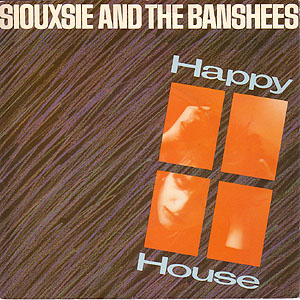
"Happy House" is a song written by Siouxsie Sioux and Steven Severin and recorded by their band Siouxsie and the Banshees. It was released as a single in March 1980 by record label Polydor, then later included on the band's third album, Kaleidoscope. "Happy House" was the group's first record made with guitarist John McGeoch and drummer Budgie.
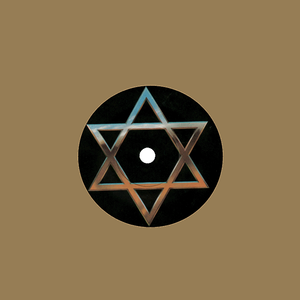
"Israel" is a song by British rock band Siouxsie and the Banshees, released as a stand-alone single in 1980 by Polydor Records.

"Spellbound" is a song by English gothic post-punk band Siouxsie and the Banshees. The group wrote it and co-produced it with Nigel Gray. It was released in 1981 by record label Polydor as the first single from the band's fourth studio album, Juju.

"Slowdive" is a song by English post-punk band Siouxsie and the Banshees. It was released in 1982 by record label Polydor as the first single from the band's fifth studio album, A Kiss in the Dreamhouse.
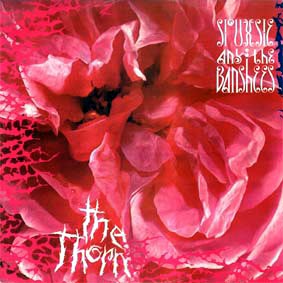
The Thorn is an EP recorded by English rock band Siouxsie and the Banshees. It was released in late 1984 by Polydor and remastered in 2004 to be included on the Downside Up box set.



















